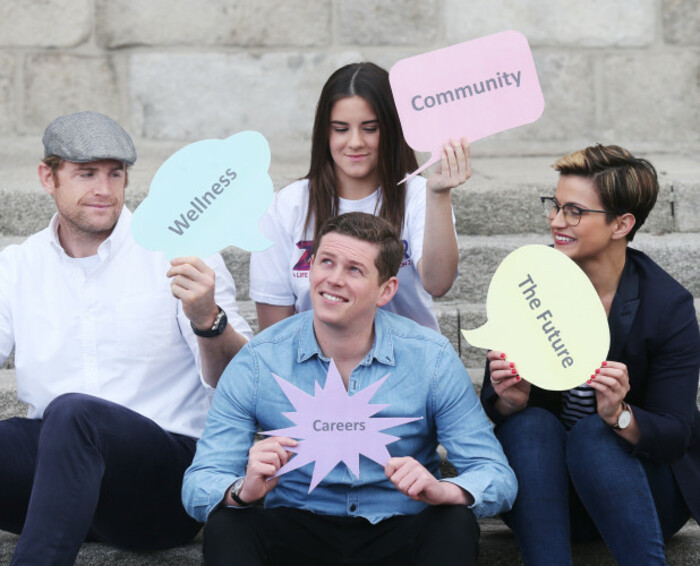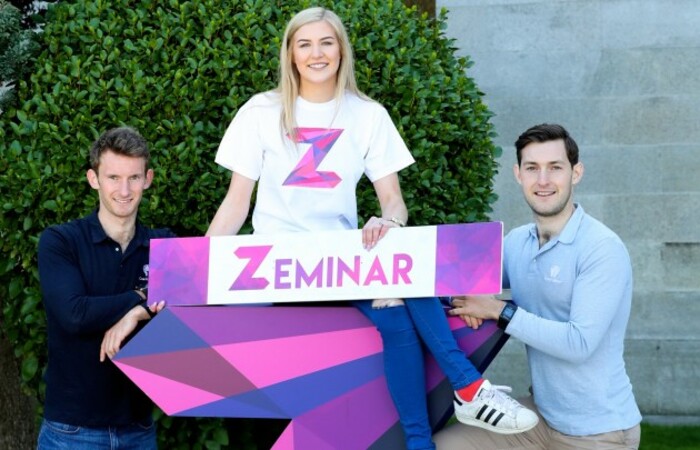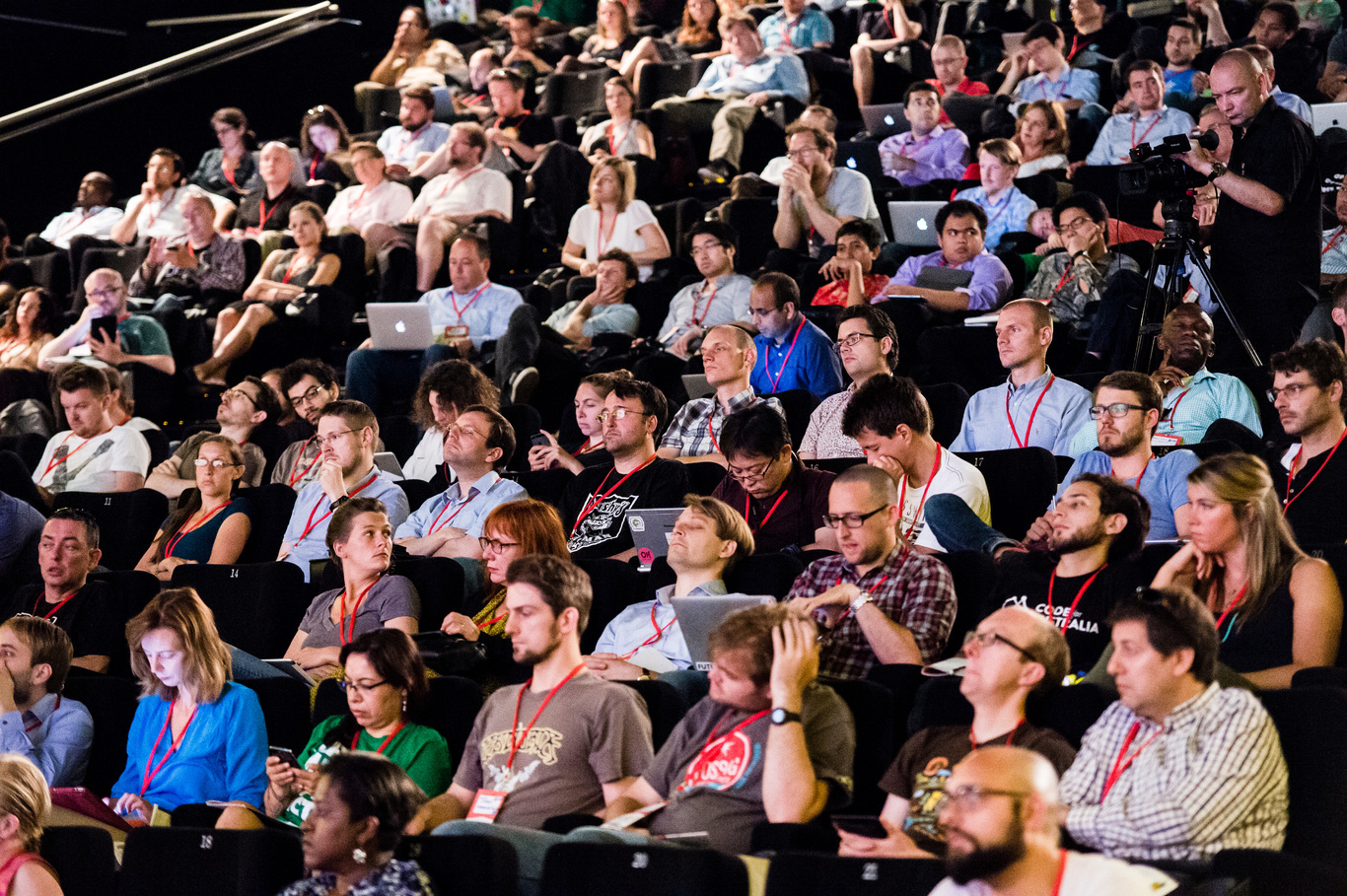'Organising events is nerve-racking - your reputation is on the line'
This entrepreneur delivers a masterclass in pulling off a first-time convention.
IF YOU THINK you’ve got an idea for a new event, great – but there’s a lot of work to be done before it can be turned it into a reality.
The very first thing you need to do is assess if there’s a demand out there, regardless of whether you’re planning a small- or large-scale convention.
It might seem obvious, but there are a lot of factors that will decide whether it’s going to be a success or not, and it’s best to figure them out early on.
Rather than putting down a deposit on a venue or paying to get a website up and running, you need to first carry out market research and prove that there are people out there that are willing to spend their time and money on your idea.
When I came up with the concept for Zeminar, I met with potential attendees and asked whether they were interested in an event covering all the major topics in their lives but underpinned but well-being and education.
It was clear that they were, so I knew that I had a chance of attracting decent numbers in our first year. In the end, about 15,000 people attended across the three days.
You don’t want to have any doubts about whether people will come. Otherwise, you could be left facing a devastating financial shortfall – events can be a risky business.
The concept
Once you’ve confirmed that there’s a demand, it’s time to lock down the concept.
There’s a kind of ‘event fatigue’ these days because everybody’s doing them. I think since Web Summit captivated the idea of mass gatherings, everybody started doing some sort of summit or expo.
You need to make sure that yours is original and that the content is engaging and genuinely beneficial to the attendees.
 Web Summit in Dublin
Web Summit in Dublin
While doing your market research, ask people what they’d like to see. You need to figure out the type of event your target market wants to attend and what would make a difference to them.
Who would they like to see deliver a keynote speech? Do they want the options of attending workshops? Is there a demand for panel discussions? Should there be exhibits and, if so, of what variety?
It’s also important that you find a suitable date for your convention. That was the number-one thing for us in our first year.
It’s a good rule of thumb to avoid organising events anywhere near Christmas or summer time because people will be distracted with holidays and have other spending priorities.
You should also make sure your event does not clash with any other conventions, new or pre-existing.
You don’t want to disrespect other organisers, some of whom might have more experience than you and will have a better chance of attracting the masses.
If your event would attract similar participants, then clashing dates is a problem all parties could do without. This is not the start you want. It’s also just bad form to be seen as eating someone else’s lunch.
Finding the right venue
There are lots of venues out there that can cater for small events, but if you’re looking to attract large numbers, there aren’t too many places in the country that can cater for that.
Even within the capital, there are only about four or five venues where you could host a large-scale expo or summit. The first step is that you contact the organisation, meet with them and check out whether or not the venue is suitable for you.
You want to make sure it’s well served with public transportation links and that there’s adequate accommodation options nearby for guests or participants who are travelling.
You also want to be happy with the venue overall – it should be something that adds to your brand. You don’t want your event to be associated with a poor venue or logistical problems.
 Zeminar's Damien Clarke (centre)
Zeminar's Damien Clarke (centre)
Once you’ve found the right space, you need to pitch your idea to them. You need to convince them that you’re capable of putting on the event. They are not in the business of hosting failed conventions because it could damage their reputation.
You need to sell your concept, your team and your main sponsors. It’s pretty much like an investment pitch.
Sponsorship
One of the big lessons we learned last year was that it’s takes a long time to attract sponsors. It’s less likely for a first-time event to get big names on board straight away, so you’ve got to be patient and keep communication lines open.
Companies get so many sponsorship requests throughout the year, but if you’re able to offer them a desirable opportunity tailored to their needs then you’ll get more success.
You also need to secure media partners because they can give you some much-needed exposure and this will help attract sponsors too.
Our media partners last year valued the demographic that we were working with – 15- to 20-year-olds and their mentors - and they were able to leverage off the speakers we had on board.
If a media company likes your event, they will want to collaborate with you because they value the demographic you’re working with and can use the content on their platforms.
Suppliers and speakers
You’ll also have to source your own suppliers to deal with production. The venue will basically give you a shell of a venue and the basics. They will supply you with a list of preferred partners, but you have to source everything yourself.
For us, we hired the best of the best for our first year. That meant we didn’t have to worry as much about things like ticketing, security and health and safety.
If you haven’t done this before, it’s a dangerous game if you think you’re going to be able to learn all those things yourself and save money. We didn’t do that, we hired experienced organisations that we trusted and that took the pressure off us.
We knew this would cost us initially, but we decided very early on that we are in this for the long-term and the feedback we received post-event was very positive so the additional cost was validated.
In terms of securing speakers, one of the best ways to approach them is through social media.
Let them know about what you’re trying to achieve and who else is coming. Once you have a big name on the lineup, people will be keen to share a stage with them so a big-ticket keynote speaker is a great hook.
Having said that, it’s not a good idea to base your entire event around one or two speakers in case they pull out.
That didn’t happen to us last year – all 75 showed up – but our event is not about individual speakers. We’ve pitched Zeminar as a social enterprise to promote well-being among young people and that’s what’s most important for us.
It’s a risk – but it gets easier
If you’re organising your first event, it can be a very nervous time as opening day draws nearer.
You’ve put your money down, you’ve let the world know you’re creating this experience – then people have to come on the day and it has to run smoothly.
As I said earlier, event organisation is a risky business. You need to have that entrepreneurial spirit of being a bit of a risk-taker because your reputation and money are on the line.
 Zeminar's 2017 launch
Zeminar's 2017 launch
It’s also important to know that you’re unlikely to make any money at it, certainly for the first two to three years.
Right now, we’re running Zeminar voluntarily. This is a long-term project and we agreed early on that we’d personally commit time and money to get this off the ground.
You have to be willing to make sacrifices and you have to be in it for the long-haul. It’s satisfying work if you can pull it off, especially when you get the feedback afterwards and it has made a genuine difference to an individual or a group.
Damien Clarke is the founder of Zeminar. This article was written in conversation with Conor McMahon as part of a series of masterclasses with some of Ireland’s most influential business people.
If you want to share your opinion, advice or story, email opinion@fora.ie.






